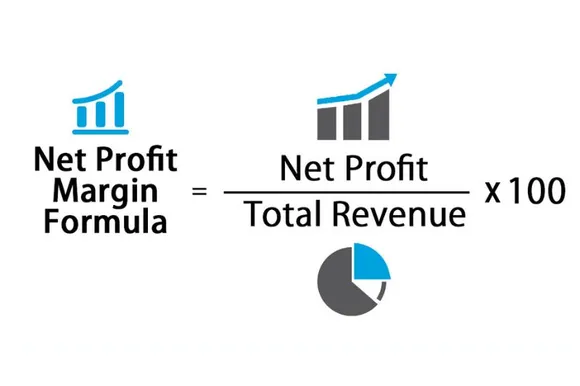
What Is Brand Equity?

Brand equity represents the additional value a company derives from a product with a recognizable name compared to a generic equivalent. This equity is cultivated through making products memorable, easily identifiable, and superior in quality and reliability. Effective mass marketing campaigns further enhance brand equity.
When a company possesses positive brand equity, customers are willing to pay a premium for its products, even when alternatives are available at lower prices. This willingness translates to higher profit margins, as the production and marketing costs remain comparable to those of competitors, but the price premium directly contributes to the firm's profit.
Key Takeaways
- Brand equity refers to the value derived from brand recognition compared to generic equivalents.
- It comprises consumer perception, positive or negative effects, and the resultant value.
- Brand equity directly impacts sales volume and profitability, as consumers prefer reputable products and services.
- Companies within the same industry often compete based on brand equity.
Importance of Brand Equity
Brand equity encompasses several key components: consumer perception, the resultant effects (positive or negative), and the value these effects generate. Consumer perception, built through both knowledge and experience with a brand, forms the foundation of brand equity. Positive perception translates into benefits for the organization, its products, and its financial health, while negative perception can have the opposite effect.
These perceptions can manifest as either tangible or intangible value. Positive effects lead to increased revenue or profits (tangible value) and enhanced marketing outcomes such as awareness or goodwill (intangible value). Conversely, negative effects result in reduced tangible and intangible value. For instance, a brand with negative equity may suffer if consumers prefer generic products over branded ones, often due to issues like product recalls or environmental scandals.
Effect on Profit Margins

Brands that customers associate with quality or prestige can command higher prices, as their products are perceived to be more valuable than those of competitors. This market perception allows brands with high equity to charge more, translating to increased profit margins.
Positive brand equity also boosts sales volumes. Take Apple, for example: customers frequently queue for new product releases, despite higher prices compared to competitors. This loyalty stems from Apple's substantial positive brand equity, which drives significant sales. Higher sales volumes, coupled with fixed costs, enhance profit margins.
Additionally, brand equity affects customer retention. Loyal customers, who often own multiple products from a brand like Apple, eagerly anticipate new releases. High customer retention reduces marketing costs, as it is more cost-effective to retain existing customers than to acquire new ones, thus improving profit margins.
Real-World Examples of Brand Equity
- Tylenol: Trusted since 1955, Tylenol has expanded its market presence with variants like Tylenol Extra Strength and Children's Tylenol. Consumers' trust in the brand has grown, as evidenced by its consistent market performance.
- Kirkland Signature: Launched in 1995 by Costco, Kirkland Signature has shown positive growth, covering a wide range of products. Its cost-effectiveness has contributed to its popularity and positive brand equity.
- Starbucks: Recognized for its social responsibility, Starbucks boasts a vast global presence and a high regard for quality, which contributes to its strong brand equity.
- Coca-Cola: With profit margins between 25-30%, Coca-Cola is a symbol of positive experiences and a rich history. Its innovative marketing campaigns have solidified its brand equity worldwide.
Brand equity serves as a key indicator of company strength and performance. In competitive industries, companies often vie for superior brand equity. For instance, Home Depot and Lowe's consistently rank as top hardware brands, with consumer perception of their e-commerce capabilities playing a significant role in their brand equity.
Why Is Brand Equity Important?
- Increased Customer Loyalty: Strong brand equity fosters customer loyalty, leading to repeat purchases and a stable customer base.
- Higher Perceived Value: Brands with strong equity can command higher prices due to their perceived value.
- Competitive Advantage: Familiar brands are more likely to be chosen over lesser-known ones, aiding in market share acquisition.
- Positive Reputation: High-quality products and services from strong brands result in greater customer satisfaction.
Elements of Brand Equity
- Brand Awareness: Familiarity and recognition among consumers.
- Brand Loyalty: Consistent consumer preference for a specific brand.
- Brand Image: Perceptions regarding quality, reliability, and uniqueness.
- Brand Associations: Emotional or psychological connections, such as trust or nostalgia.
- Brand Value: Perceived benefits and overall value influencing purchasing decisions.
Factors Affecting Brand Equity
- Product/Service Quality: High quality enhances positive consumer perception.
- Marketing Efforts: Consistent, effective marketing builds brand image.
- Customer Experiences: Positive experiences boost loyalty and brand associations.
- Brand Reputation: Trustworthiness and reliability attract consumers.
- Competition: Multiple options can impact brand equity.
- Consumer Preferences: Shifts in trends can affect brand standing.
Brand equity reflects the value added by a brand to a product or service. It influences consumer decisions and loyalty, providing companies with competitive advantages and the ability to command premium prices. Strong brand equity results from consistent marketing, positive customer experiences, and a solid reputation.
Conclusion
In conclusion, brand equity is a pivotal factor that can significantly influence a company's market success and profitability. It encapsulates the value derived from consumer recognition, perception, and loyalty towards a brand, distinguishing it from generic competitors. Positive brand equity allows companies to command higher prices, boost sales volumes, and enhance profit margins, all while fostering strong customer retention. As demonstrated by real-world examples like Apple, Coca-Cola, and Starbucks, robust brand equity is built through consistent quality, effective marketing, and memorable customer experiences.
What to read next

.webp)